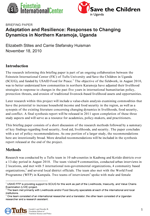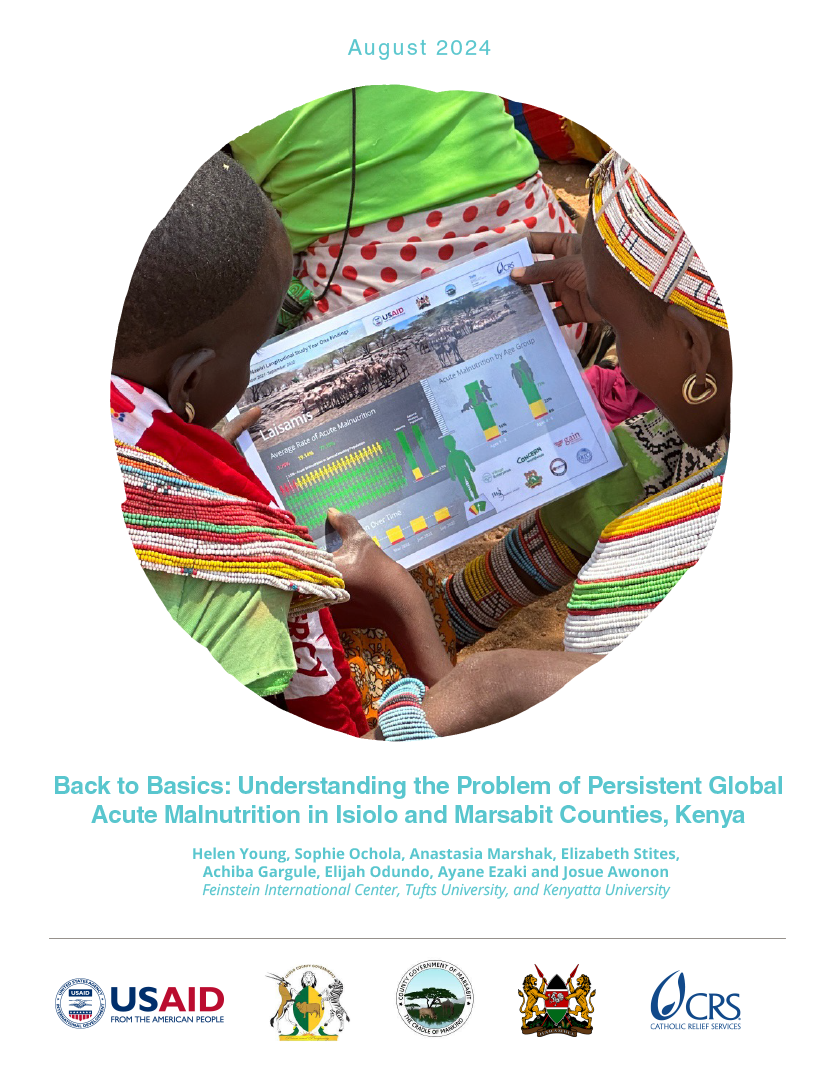This briefing paper is the first output from the LIVE project (Livelihoods, Insecurity and Value Chains Examination in Karamoja), a collaborative study with Save the Children in Uganda funded by USAID Food for Peace. Based on fieldwork from August 2010, the paper examines livelihoods, food security, and security in the northern Karamoja districts of Kotido and Kaabong, and seeks to understand the livelihood adaptations of communities and households to recent changes caused by internal stresses and external shocks. The briefing paper also examines community perspectives on new food aid policies, and discusses possible gaps between local and external expectations and program goals.
Adaptation and Resilience

ASSOCIATED PROJECT
SUBJECTS
PUBLICATION TYPE
LOCATION

RELATED PUBLICATIONS
This report outlines an anticipatory insurance product designed to support farmers in the drought-prone regions of Malawi and Zambia.
•
This report presents the final findings from the USAID Nawiri longitudinal study, which investigated the drivers of the persistently high rates of acute malnutrition from September 2021 to September 2023.
•






